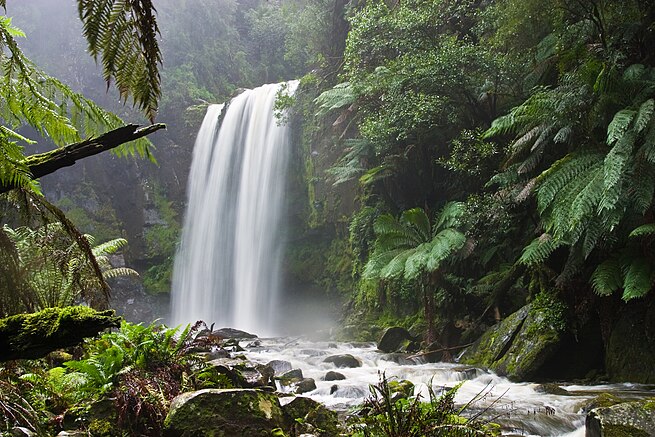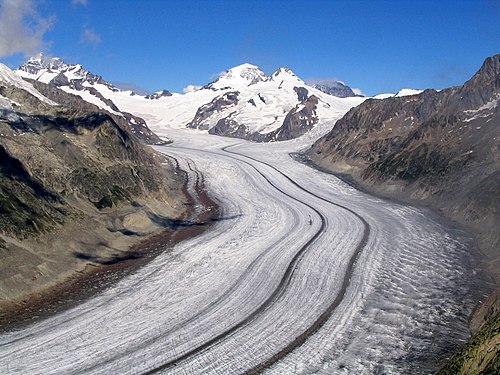Landscapenoun
A portion of land or territory which the eye can comprehend in a single view, including all the objects it contains.
Landscapenoun
A picture representing a scene by land or sea, actual or fancied, the chief subject being the general aspect of nature, as fields, hills, forests, water. etc.
Landscapenoun
The pictorial aspect of a country.
Landscapenoun
(printing) a mode of printing where the horizontal sides are longer than the vertical sides
Landscapenoun
A space, indoor or outdoor and natural or man-made (as in "designed landscape")
Landscapenoun
(figuratively) a situation that is presented, a scenario
Landscapeverb
Create or maintain a landscape.
Landscapenoun
A portion of land or territory which the eye can comprehend in a single view, including all the objects it contains.
Landscapenoun
A picture representing a scene by land or sea, actual or fancied, the chief subject being the general aspect of nature, as fields, hills, forests, water. etc. Compare seascape.
Landscapenoun
The pictorial aspect of a country.
Landscapenoun
an expanse of scenery that can be seen in a single view
Landscapenoun
painting depicting an expanse of natural scenery
Landscapenoun
a genre of art dealing with the depiction of natural scenery
Landscapenoun
an extensive mental viewpoint;
Landscapeverb
embellish with plants;
Landscapeverb
do landscape gardening;
Landscapenoun
all the visible features of an area of land, often considered in terms of their aesthetic appeal
Landscapenoun
a picture representing an area of countryside
Landscapenoun
the genre of landscape painting
Landscapenoun
the distinctive features of a sphere of activity
Landscapenoun
denoting a format of printed matter which is wider than it is high
Landscapeverb
make (a garden or other area of ground) more attractive by altering the existing design, adding ornamental features, and planting trees and shrubs
Landscape
A landscape is the visible features of an area of land, its landforms, and how they integrate with natural or man-made features. A landscape includes the physical elements of geophysically defined landforms such as (ice-capped) mountains, hills, water bodies such as rivers, lakes, ponds and the sea, living elements of land cover including indigenous vegetation, human elements including different forms of land use, buildings, and structures, and transitory elements such as lighting and weather conditions.
Naturenoun
(uncountable) The natural world; that which consists of all things unaffected by or predating human technology, production, and design. E.G. the ecosystem, the natural environment, virgin ground, unmodified species, laws of nature.
Naturenoun
The innate characteristics of a thing. What something will tend by its own constitution, to be or do. Distinct from what might be expected or intended.
Naturenoun
The summary of everything that has to do with biological, chemical and physical states and events in the physical universe.
Naturenoun
Conformity to that which is natural, as distinguished from that which is artificial, or forced, or remote from actual experience.
Naturenoun
Kind, sort; character; quality.
Naturenoun
(obsolete) Physical constitution or existence; the vital powers; the natural life.
Naturenoun
(obsolete) Natural affection or reverence.
Natureverb
(obsolete) To endow with natural qualities.
Naturenoun
The existing system of things; the universe of matter, energy, time and space; the physical world; all of creation. Contrasted with the world of mankind, with its mental and social phenomena.
Naturenoun
The personified sum and order of causes and effects; the powers which produce existing phenomena, whether in the total or in detail; the agencies which carry on the processes of creation or of being; - often conceived of as a single and separate entity, embodying the total of all finite agencies and forces as disconnected from a creating or ordering intelligence; as, produced by nature; the forces of nature.
Naturenoun
The established or regular course of things; usual order of events; connection of cause and effect.
Naturenoun
Conformity to that which is natural, as distinguished from that which is artificial, or forced, or remote from actual experience.
Naturenoun
The sum of qualities and attributes which make a person or thing what it is, as distinct from others; native character; inherent or essential qualities or attributes; peculiar constitution or quality of being.
Naturenoun
Kind, sort; character; quality.
Naturenoun
Physical constitution or existence; the vital powers; the natural life.
Naturenoun
Natural affection or reverence.
Naturenoun
Constitution or quality of mind or character.
Natureverb
To endow with natural qualities.
Naturenoun
the essential qualities or characteristics by which something is recognized;
Naturenoun
a causal agent creating and controlling things in the universe;
Naturenoun
the natural physical world including plants and animals and landscapes etc.;
Naturenoun
the complex of emotional and intellectual attributes that determine a person's characteristic actions and reactions;
Naturenoun
a particular type of thing;
Naturenoun
the phenomena of the physical world collectively, including plants, animals, the landscape, and other features and products of the earth, as opposed to humans or human creations
Naturenoun
the physical force regarded as causing and regulating the phenomena of the world
Naturenoun
the basic or inherent features, character, or qualities of something
Naturenoun
the innate or essential qualities or character of a person or animal
Naturenoun
inborn or hereditary characteristics as an influence on or determinant of personality.
Naturenoun
a person of a specified character
Nature
Nature, in the broadest sense, is the natural, physical, material world or universe. can refer to the phenomena of the physical world, and also to life in general.


































